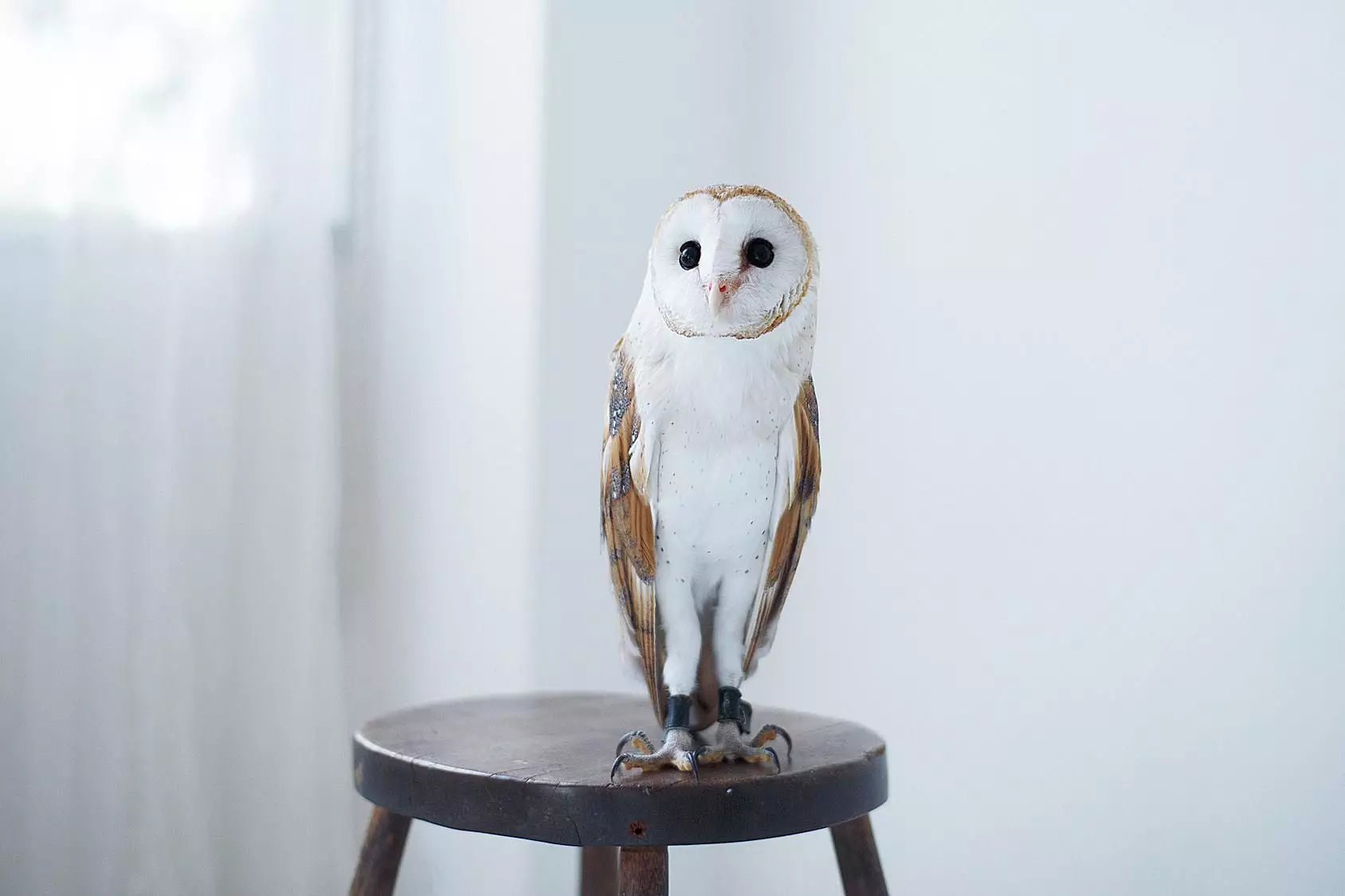Owls have long captivated human imagination, often portrayed in literature and film as wise, mystical creatures with friendly dispositions. From Harry Potter’s beloved Hedwig to the enchanting illustrations in children’s books, these birds are advertised as ideal companions. However, the reality of owning an owl is far from the charming depictions we see on screen. This article delves deeply into the misperceptions surrounding pet owls and highlights the grave responsibilities and challenges involved in their care.
One of the most significant misconceptions about owls is their suitability as pets. Their portrayal in popular media typically presents them as affectionate and intelligent animals that can thrive in human households. This image does not take into account the unique needs and behaviors of these raptors, which are inherently wild. Unlike parrots, which have a flock mentality and can adapt to a domestic environment, owls are solitary hunters in the wild. They do not seek companionship outside of their mating pairs or young. As a result, they often perceive humans as intruders or threats.
When considering keeping an owl, one must acknowledge that these birds are not designed for captivity in the conventional sense. Standard cages, typically suited for parrots or other domesticated birds, fail to accommodate the physical and psychological requirements of owls. These birds require ample space to fly and exhibit their natural hunting behaviors. The idea of placing an owl in a cage, no matter how spacious, is akin to confining a predator in a small enclosure, negating its instincts. Additionally, their feathers require regular cleaning for optimal health and hunting efficiency, which management in a regular home setting becomes increasingly challenging.
Feeding owls is one of the most profound challenges faced by potential owners. As carnivorous predators, owls’ dietary needs are specialized and cannot be met by conventional bird food such as seeds or commercial pellets. Instead, owls require a diet primarily consisting of whole prey items. This includes small mammals and birds, which must be provided fresh or properly thawed from frozen stock. The logistics of obtaining, storing, and preparing such foods can be overwhelming for the average household. Moreover, the unpleasantness associated with feeding a bird of prey—often requiring the handling of whole rodents or other livestock—can deter many from seriously considering owl ownership.
Compounding these dietary challenges is the aftermath of mealtime. Owls, like all birds, can be messy eaters, leading to a cleanup process that can be both tedious and unpleasant. The physical act of eating, coupled with potential waste in their living environment, poses additional burdens on an owner. Even the most well-meaning individual looking to care for an owl may find it difficult to maintain a clean space for such high-maintenance creatures.
The legality surrounding owl ownership is another significant barrier. Many regions legally prohibit keeping owls as pets due to their status as wild animals and their specific needs. Owning an owl without the proper permits can lead to severe legal repercussions, including hefty fines and potential jail time. Additionally, should an owl fall ill, finding a specialized veterinarian—trained to treat raptors specifically—can be a daunting task. Most standard veterinarians are not equipped to handle the unique health issues these birds face. This fact poses an overwhelming risk to potential illegal owners who would be reluctant to seek help for fear of legal repercussions.
Beyond the legal constraints, there is an ethical discussion surrounding the keeping of owls as pets. Taking an owl from its natural habitat deprives it of its role in the ecosystem and its opportunity to live freely. These magnificent creatures are best appreciated in their natural setting, where they exhibit their unique behaviors and contribute to biodiversity. This can lead to a deeper appreciation and understanding of their role in the environment than ownership could provide.
For those enamored by owls, there are alternative ways to foster a connection with these incredible birds without the struggles of ownership. Many wildlife care centers and sanctuaries offer sponsorship programs, allowing individuals to support the care of owls while gaining insight into their lives and struggles. Participating in educational programs or volunteer opportunities provides a chance to interact with and learn about these avian wonders legally and ethically.
In contrast to contemplating the ownership of an owl, consider adopting a more suitable companion, such as a parrot. Parrots not only reflect emotional reciprocity but also adapt well to human environments, engaging in social interactions that nurture their need for companionship.
While owls may appear as enchanting companions in fiction, the reality of caring for one is fraught with challenges. Appreciating owls in their natural habitat or through conservation programs is far more rewarding than attempting to domesticate these extraordinary creatures. Understanding their true nature is essential to ensuring that their beauty and majesty are preserved for generations to come.

